- Home
- Addiction Treatment
- Dual Diagnosis
- Dual Diagnosis: PTSD
Dual Diagnosis: PTSD
PTSD and addiction are two mental health conditions that often present together.
According to UK charity Mind, 4 in 100 people have PTSD in England.
It’s important to bear in mind, though, that the vast majority of people with PTSD are actually misdiagnosed.
PTSD manifests with symptoms that can appear to be something else (i.e. anxiety, eating disorders, addiction).

It’s therefore safe to assume that the amount of people who have PTSD is probably higher than the numbers reported officially.
There are deep-rooted reasons people with PTSD turn to alcohol and drugs.
How is this addressed and how can they both be healed?
The answer is through rehabilitation treatments that support people to recover in both areas.
What Is PTSD?
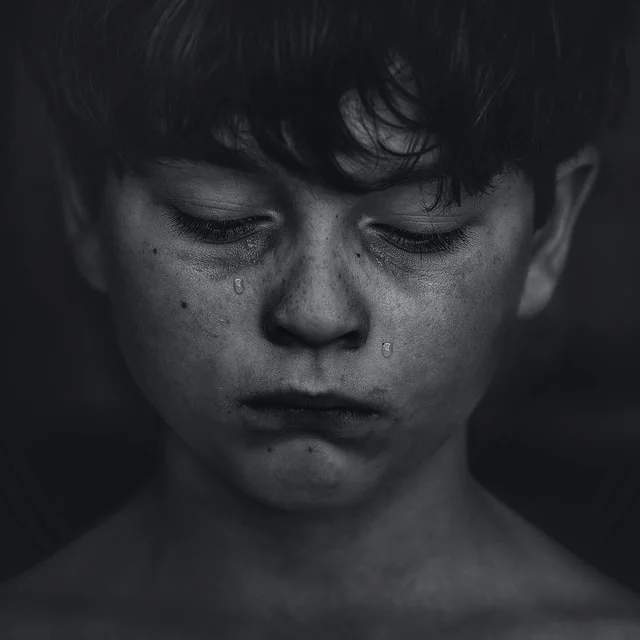
PTSD or Post-traumatic Stress Disorder is a mental health illness that develops after a person has experienced a traumatic event or events.
The event itself might have inflicted physical or psychological trauma as it was happening.
When something dangerous like this occurs, it can disrupt the very foundations of a person as they learn at a base level that the world isn’t safe.
Psychological trauma can live on in the mind and body for the rest of a person’s life if it’s left untreated.
It can be debilitating and have wide-reaching effects.
How Does PTSD Develop?
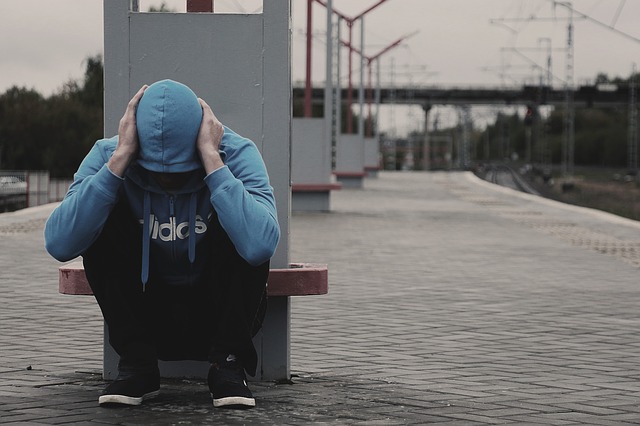
PTSD occurs when a person has experienced a threat around safety or health.
Research suggests death or injury might be experienced, threatened or witnessed, and it’s associated with responses of fear, helplessness and horror.
PTSD might occur after one event such as a natural disaster, or after a period of time of repeated traumatic experiences, such as through recurring domestic abuse.
Symptoms might develop soon after the event or might take years to manifest.
What Experiences Might Lead To PTSD Developing?

There are particular events and experiences that can lead to PTSD, including the following:
- Childhood abuse including physical, emotional, sexual, abuse and neglect
- Military combat
- Terrorism
- Natural disasters
- An accident such as a car accident
- Domestic violence
- Death of a loved one
People who develop PTSD can find it hard to connect with others.
This isolating experience and its frightening or distressing symptoms can lead a person to using substances.
Interestingly, it’s shown to be more likely to occur in those without developed coping skills.
This is one of the areas people learn to improve in at a private rehab centre.
PTSD And The Brain
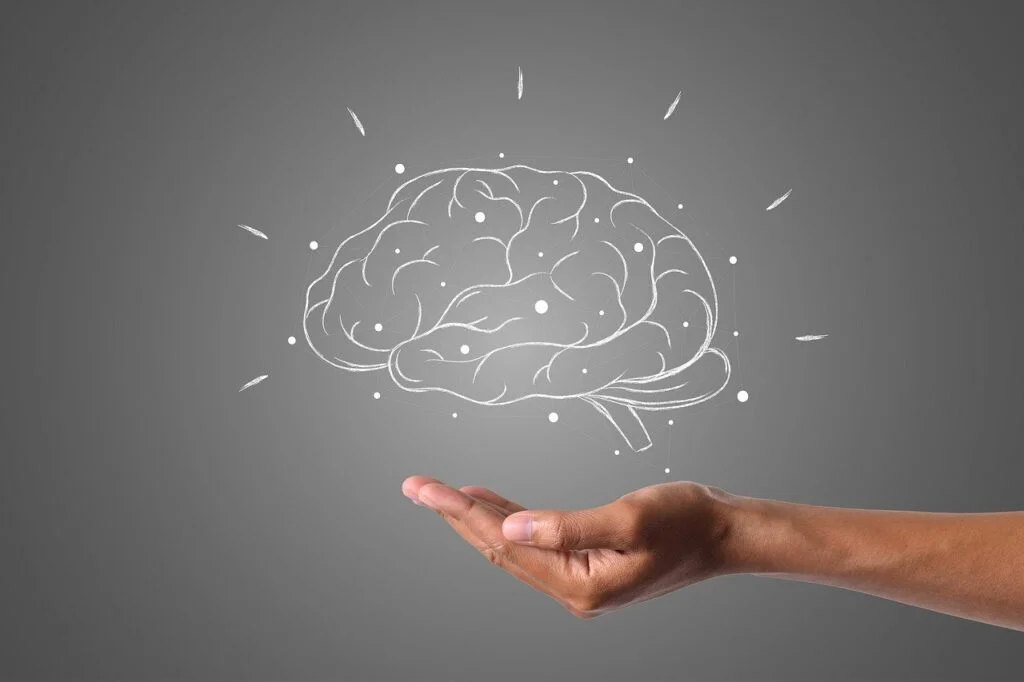
Research shows that the hippocampus region in the brain is smaller in people who have PTSD.
This is the part of the brain associated with learning, emotion and memory.
Neurological factors are considered within the rehabilitation environment and patients are treated in light of them.
The Symptoms Of PTSD
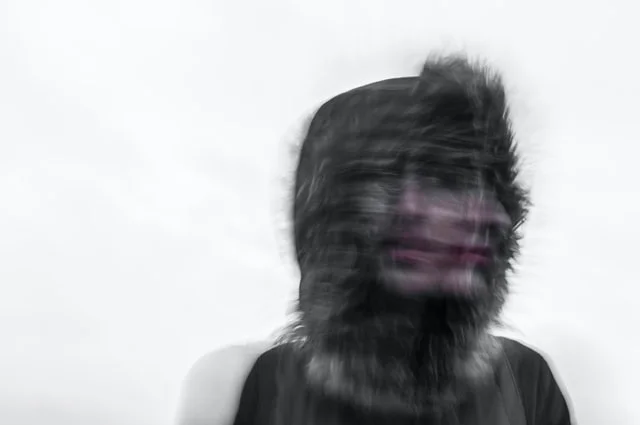
There are many different ways that PTSD presents in people.
Symptoms can includes:
- Anxiety including “over” or “under-functioning, panic attacks, OCD and hoarding
- Flashbacks
- Memories
- Sleep disturbances and nightmares
- Extreme reactions at unexpected triggers
- Numbness
- Impaired memory
- Dissociation
- Seemingly “erratic” emotional reactions
- Relationship problems
Living with PTSD can be extremely uncomfortable for the person, as well as for those who care about them.
How Does PTSD Affect Mental And Physical Health?
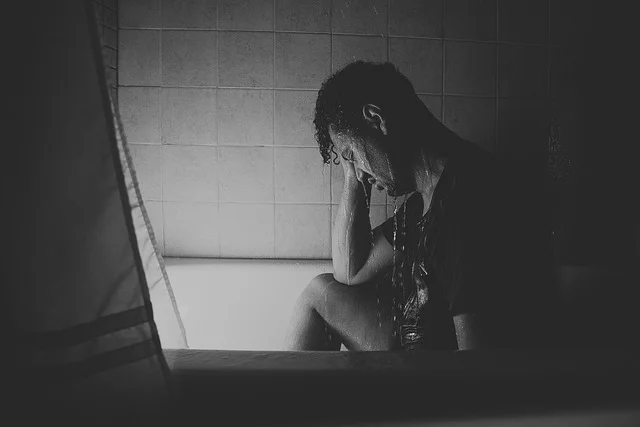
People might experience or develop:
- Depression
- Anxiety
- Mood swings
- Mental health problems
- Eating disorders
- Increased physical ailments
- IBS
- Addiction and linked negative health effects
People living with PTSD can feel as though they’re reliving traumatic events.
Their lives might be controlled by various triggers (i.e. they might avoid going to certain places), or they might become “over”-functioning, which is basically a state of hyperarousal and hyperawareness.
All of this can obviously be exhausting and seriously diminish quality of life and wellbeing.
What Is Addiction?
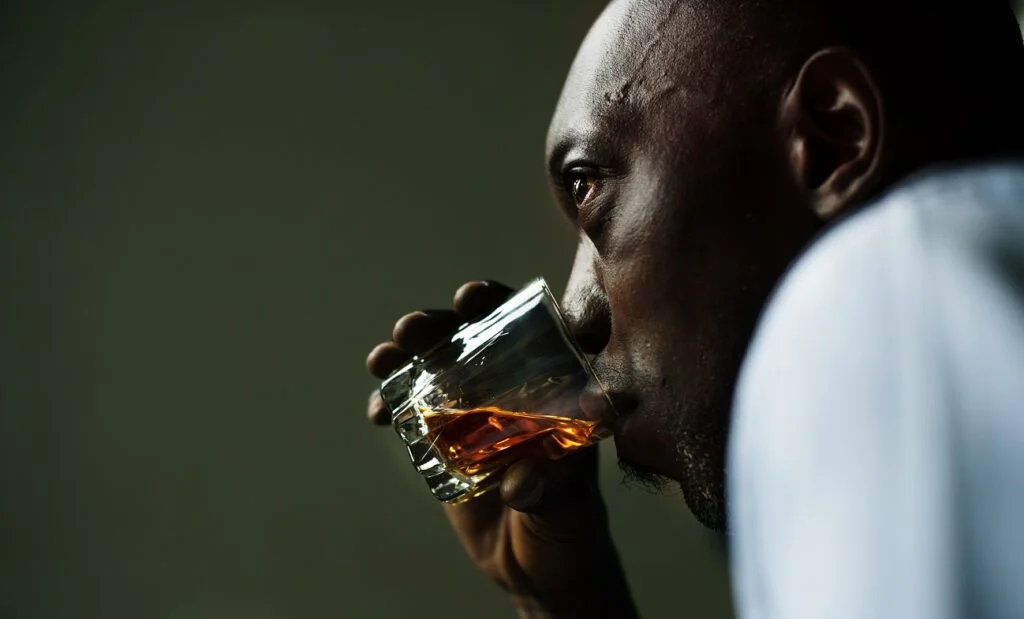
When a person comes to rely on a psychoactive substance to “feel normal” or to cope, it’s highly likely an addiction has developed.
Other symptoms of addiction include:
- Increasing drug and alcohol use due to tolerance
- Using substances more often or for longer periods of time
- Wanting to stop substances and not being able to
- Experiencing severe withdrawal symptoms
- Negative impact on relationships, work, education and finances
The Connection Between PTSD And Substance Misuse

Research states that a person with PTSD is 2-4 times more likely to develop an substance use disorder (SUD).
Substances such as alcohol and heroin are commonly used by people to try and numb emotional pain, feelings and memories.
When people do this often in order to self-medicate, they can develop an addiction.
When the two conditions occur together, there is more risk of:
- Chronic health problems
- Poor social functioning
- Increased suicide attempts
- Increased legal problems
- Increased violence
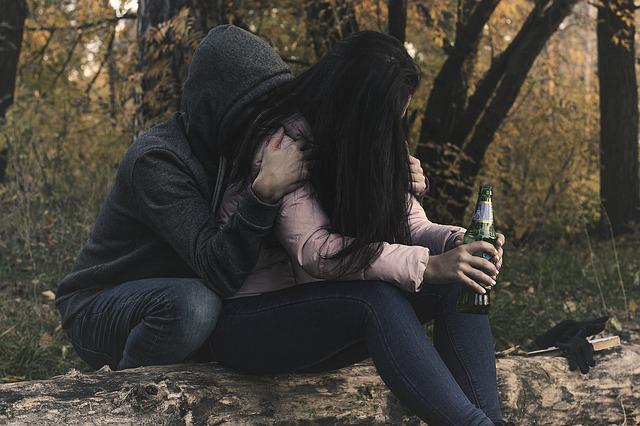
As substances cause hangovers, comedowns and severe withdrawal, this can cause more negative effects on mood, anxiety levels and sleep, meaning that PTSD is exacerbated.
Where a person uses substances, they might use the substance again to get rid of these uncomfortable effects.
Of course, a vicious cycle develops.
How Does A Dual Diagnosis Come About?
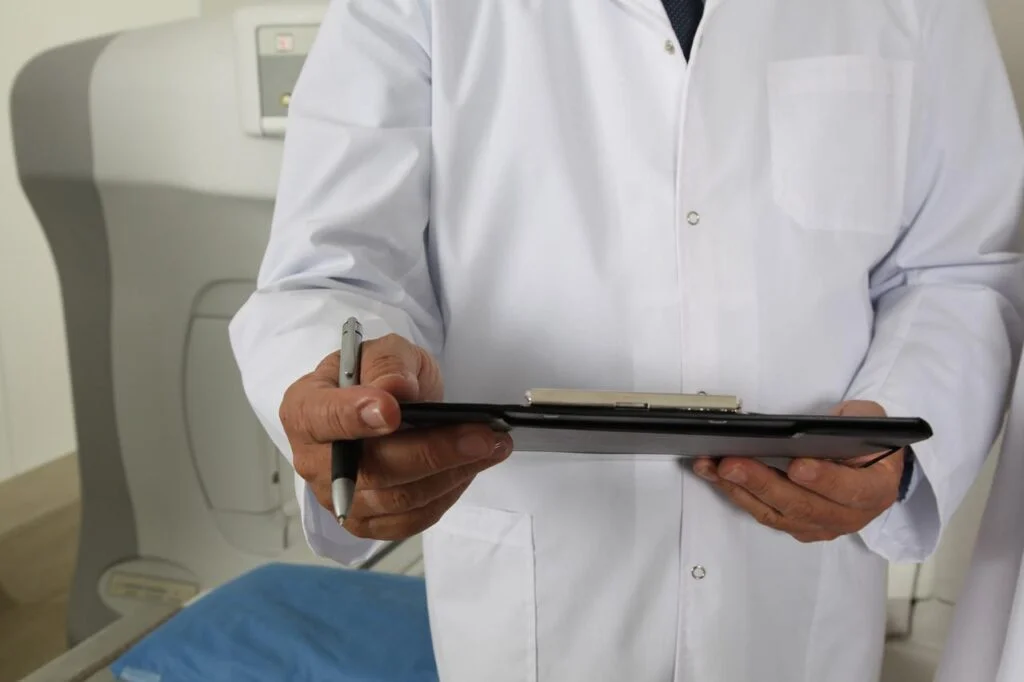
When a person has come to rely on substances, an addiction has developed.
If this same person is living with PTSD, they will have two mental health conditions.
In the mental health environment, this is known as a dual diagnosis.
A dual diagnosis is identified by a qualified professional such as a psychiatrist, doctor or therapist.
Treating Dual Diagnosis

In terms of treatment, you’ll need to address both conditions in order to heal and understand how to manage symptoms and cravings into the future.
This is obviously a massive amount to deal with and requires both medical and psychological treatment.
The best place to access this level of specialist treatment is at a private rehab clinic.
PTSD, Addiction And Army Veterans

Veterans were the first group of people where PTSD, originally labelled “shell shock”, was identified.
Ex-military people are known to be especially likely to suffer from PTSD and linked substance misuse.
The substance misuse develops from a place of self-medicating around distressing PTSD symptoms.
Many veterans are known to use cannabis, which can of course, create dissociation symptoms on its own.
This is also a symptom of PTSD.
The two together can therefore intensify particular reactions and symptoms.

Nightmares also present for some people with PTSD are also common when people withdraw from cannabis.
This can make it harder to quit.
In relation to drinking, there are 93% higher odds of screening positive for alcohol misuse for veterans.
It’s a serious issue and when PTSD and addiction present together, it can be especially hard for people to achieve sobriety.
Rehabilitation services are instrumental in helping anyone living with these conditions to recover.
Treatment For Dual Diagnosis: Addiction And PTSD

Specialist treatment for addiction and PTSD can be found at private rehab clinics.
They offer a wide range of approaches that cover the physical, psychological and spiritual aspects of healing.
To enter a drug and alcohol rehab, a person must be ready to begin recovery and want to quit drugs and alcohol.
Substances can hinder the ability to heal from PTSD, and addiction can only be effectively addressed when PTSD is.

The two need to be approached together.
Staff are trained to support you to do this.
The NHS tends to advise talking therapies and anti-depressants for PTSD.
At a rehab clinic, you’ll be offered psychotherapies such as Cognitive Behavioural therapy (CBT) and CBT coping skills, which are also used to treat PTSD.
A Specialist Treatment Programme

Along with the CBT, you’ll participate in group therapies, motivational interviewing, Family Therapies, and 12 Step groups as well as holistic therapies (such as mindfulness).
These help you to understand the causes of your addiction, how to develop self-compassion, and how to manage cravings and maintain sobriety.
As well as the support you get around addiction, you’ll also be offered treatments for PTSD.
These might include:
- PTSD psycho-education
- Prolonged exposure therapy
- EMDR
- Trauma-informed care
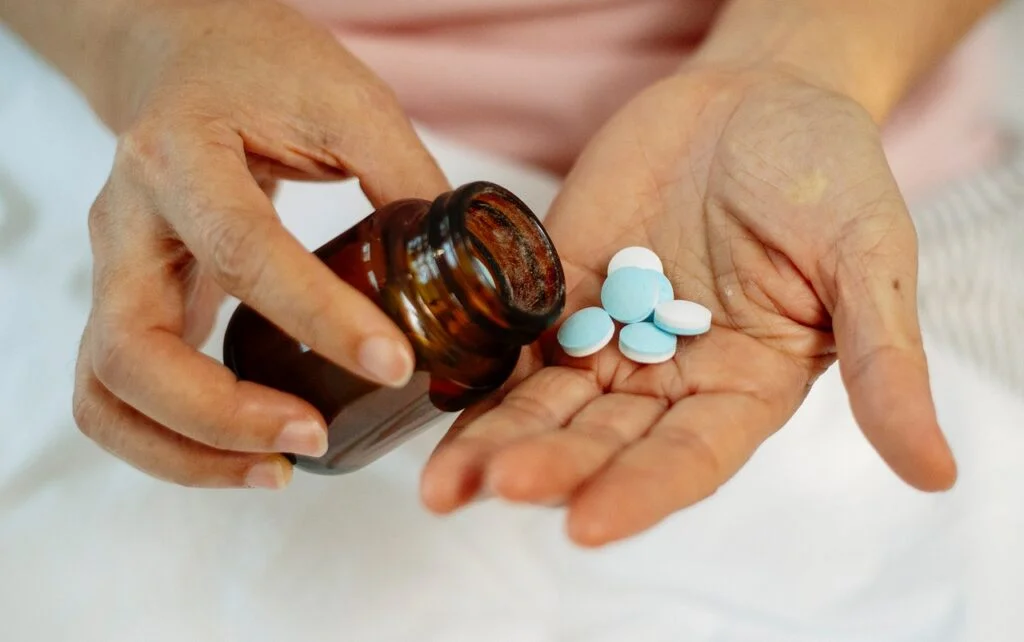
Where appropriate, you might be offered medication.
This might be linked to your mental health and PTSD.
For instance, many people are prescribed SSRIs for depression linked to PTSD.
If you’ve developed a dependency on alcohol, an opiate or benzodiazepines, you’ll also be prescribed medications to wean you off these.
This is to ensure your safety and to make detox as comfortable as possible.
Final Thoughts
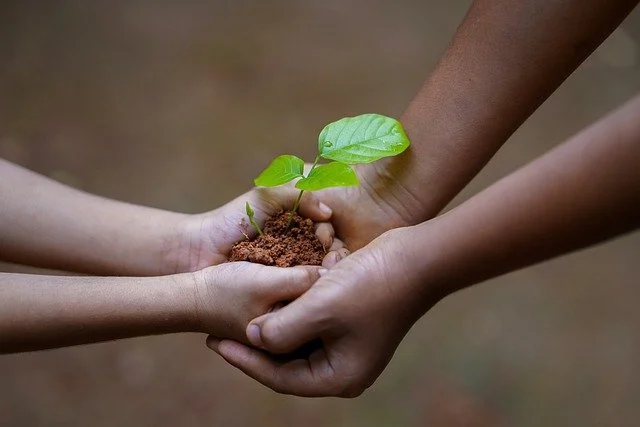
For people with PTSD, addiction has a seriously high chance of developing.
This is because people try to self-medicate around the distressing symptoms that manifest.
Of course, where psychoactive substances have an effect and where they cause withdrawal, PTSD is exacerbated.
It is possible to recover from both conditions, but specialist treatment is needed.
The roots of trauma and addiction run deep in a person’s psychology.
The symptoms and side effects aren’t easy problems to work on.
This is a journey that takes a lot of effort to unravel and professional support to be able to improve, but it is possible.
Get Help Today

If you feel you might have PTSD alongside an addiction and are interested in learning about what rehabilitation clinics can treat you, call Rehab Recovery.
Our team can explain which rehabs specialise in these two conditions, help you through the referral process and ensure that you have the best chance of recovery.
Whatever you are suffering from, help is always available.


